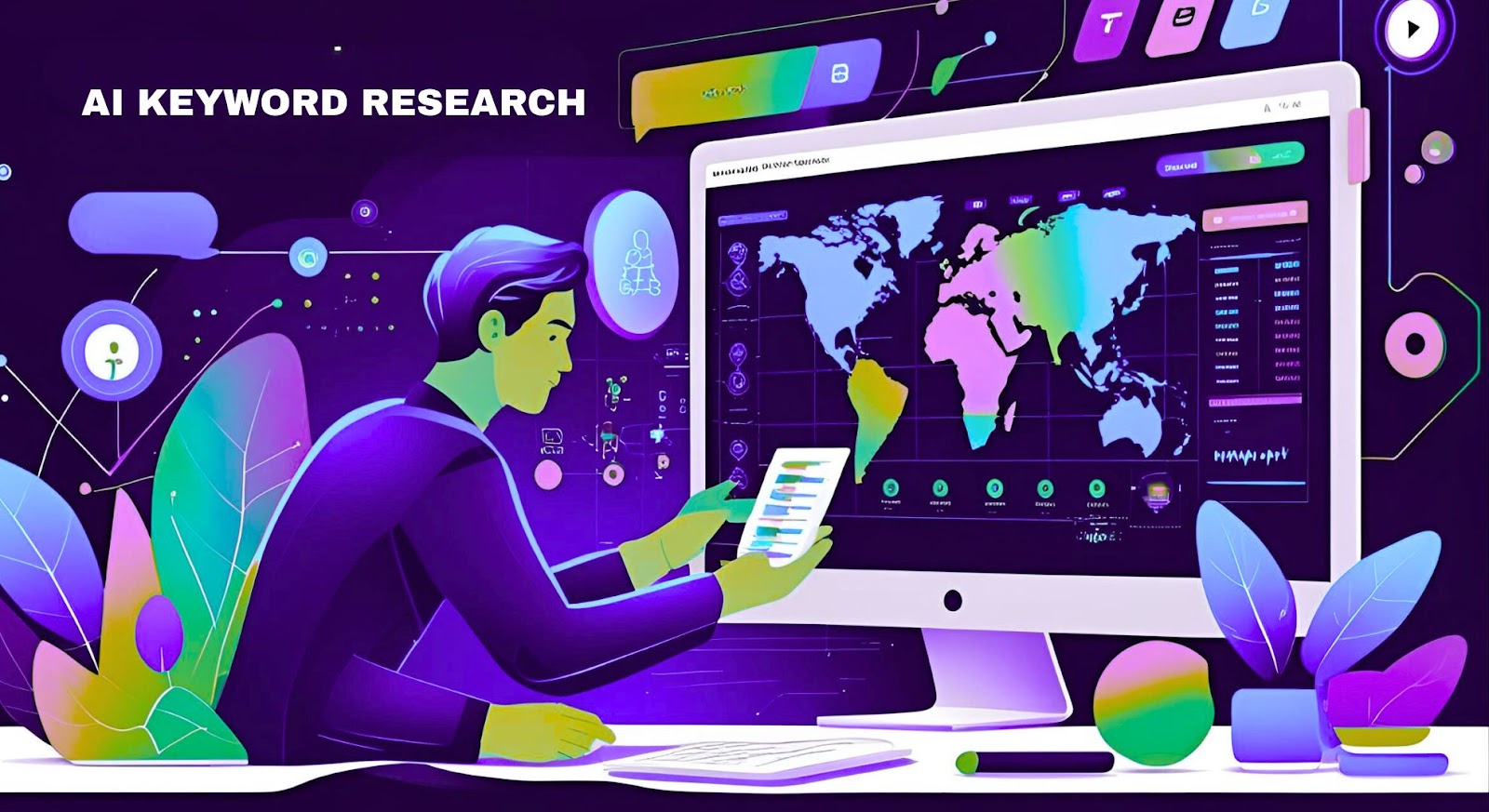Artificial intelligence has fundamentally transformed keyword research from a manual, time-intensive process into a sophisticated analytical framework that uncovers optimization opportunities invisible to traditional research methods. Modern AI-powered keyword research platforms leverage machine learning algorithms, natural language processing, and predictive analytics to identify search patterns, semantic relationships, and emerging trends that human analysts typically overlook or cannot process at scale. This technological evolution enables SEO professionals to discover untapped keyword opportunities, understand complex user intent patterns, and develop content strategies that align with actual search behavior rather than assumptions.
The competitive advantage provided by AI-driven keyword research extends beyond simple keyword discovery to encompass comprehensive market intelligence that reveals competitor gaps, seasonal trends, and emerging search patterns before they become widely recognized. Machine learning algorithms analyze millions of search queries, user interactions, and content performance metrics to identify correlation patterns that inform strategic decision-making and resource allocation optimization. Success requires understanding how to leverage AI capabilities while maintaining strategic oversight that ensures technology serves business objectives rather than replacing human insight and creativity.
Key Takeaways
• Machine learning algorithms identify semantic keyword relationships and search intent patterns that reveal optimization opportunities invisible through traditional research methods
• Predictive analytics enable identification of emerging keyword trends and seasonal patterns before competitors recognize market opportunities
• Natural language processing uncovers long-tail keyword variations and conversational search queries that align with voice search and user behavior evolution
• Automated competitive analysis reveals keyword gaps and content opportunities by analyzing competitor strategies at scale impossible through manual research
• Intent classification provides deeper understanding of user motivations behind search queries, enabling more targeted content development and optimization strategies
• Continuous learning capabilities adapt keyword strategies based on performance data and algorithm changes, maintaining optimization effectiveness over time
Overview
AI-powered keyword research represents a paradigm shift from reactive keyword targeting to proactive opportunity identification that anticipates market changes and user behavior evolution. This comprehensive analysis explores how artificial intelligence technologies enhance traditional keyword research methodologies while revealing practical implementation strategies that maximize competitive advantages. The approach emphasizes integrating AI capabilities with human expertise to develop keyword strategies that balance technological sophistication with strategic business insight and practical implementation feasibility.
Understanding AI-Driven Keyword Research Evolution
Traditional keyword research relies heavily on manual analysis of search volume data, competitive assessment, and intuitive understanding of user intent that often misses complex patterns and emerging opportunities. Human researchers typically focus on obvious keyword variations while struggling to process the massive data volumes necessary for comprehensive market analysis. AI-powered research platforms overcome these limitations by analyzing millions of search queries simultaneously, identifying subtle correlations between search terms, user behavior, and content performance that inform strategic optimization decisions.
Machine learning algorithms excel at pattern recognition across vast datasets, enabling identification of keyword opportunities that emerge from seasonal trends, cultural events, technology adoption, and market evolution. These patterns often remain invisible to human analysts until they become obvious to competitors, creating brief windows of opportunity for early adoption. AI systems continuously monitor search behavior changes, algorithm updates, and competitive activities to identify optimization opportunities in real-time rather than through periodic manual analysis.
The sophistication of modern AI keyword research extends beyond simple search volume analysis to encompass semantic understanding, user intent classification, and predictive modeling that anticipates future search behavior patterns. Natural language processing capabilities enable AI systems to understand context, synonyms, and related concepts that inform comprehensive keyword strategy development. This semantic understanding reveals optimization opportunities for content that satisfies user intent through related terms and concepts rather than exact keyword matching.
Semantic Search and Intent Understanding
AI-powered semantic analysis identifies relationships between keywords, topics, and user intent that inform content strategy development beyond traditional keyword density optimization. Machine learning algorithms analyze user behavior patterns, content engagement metrics, and search result interactions to understand how different keywords relate to actual user needs and business objectives. This semantic understanding enables development of content strategies that satisfy user intent while building topical authority across related keyword clusters.
Intent classification algorithms categorize search queries based on user motivations including informational, navigational, commercial, and transactional intent patterns. This classification enables more targeted content development that aligns with specific user needs while optimizing for keywords with higher conversion potential. Understanding intent patterns helps prioritize keyword opportunities based on business value rather than search volume alone.
AI-Powered Competitive Intelligence
Artificial intelligence transforms competitive keyword analysis by enabling real-time monitoring of competitor strategies, content performance, and ranking changes across thousands of keywords simultaneously. Traditional competitive analysis requires manual monitoring of individual competitors and periodic assessment of ranking changes that may miss rapid strategy shifts or emerging competitive threats. AI-powered platforms continuously monitor competitor activities while identifying gaps in their keyword strategies that represent immediate optimization opportunities.

Machine learning algorithms analyze competitor content quality, backlink profiles, and user engagement metrics to identify weaknesses in their optimization strategies that can be exploited through superior content development or technical implementation. This competitive intelligence extends beyond simple ranking tracking to encompass comprehensive strategy analysis that reveals why competitors succeed or fail with specific keyword targets.
Competitive gap analysis powered by AI identifies keyword opportunities where competitors demonstrate weak optimization or absent content coverage. These gaps often represent low-hanging fruit for optimization efforts that can generate quick wins while building foundation for more competitive keyword targeting. AI systems prioritize these opportunities based on competitive difficulty, search volume potential, and alignment with business objectives.
Automated Market Analysis
AI-powered market analysis examinesindustry trends, seasonal patterns, and emerging topics that influence keyword opportunity identification and prioritization. Machine learning algorithms process news articles, social media conversations, industry publications, and search trend data to identify emerging topics before they become competitive keywords. This predictive capability enables early content development that captures traffic before competitors recognize opportunities.
Trend prediction algorithms analyze historical search patterns, seasonal variations, and external factors that influence keyword performance over time. This analysis enables optimization strategies that anticipate market changes rather than react to them, providing competitive advantages through strategic timing of content development and promotion efforts.
Advanced Keyword Discovery Techniques
AI-powered keyword discovery goes beyond traditional brainstorming and suggestion tools to identify optimization opportunities through sophisticated analysis of search behavior, content gaps, and user journey patterns. Natural language processing algorithms analyze customer support inquiries, social media conversations, and user-generated content to identify questions and topics that represent keyword opportunities not captured through conventional research methods.
Clustering algorithms group related keywords based on semantic similarity, user intent, and content requirements to create comprehensive optimization strategies that address entire topic areas rather than individual keywords. This clustering approach enables efficient content development that targets multiple related keywords while building topical authority and satisfying diverse user search patterns within specific subject areas.
Long-tail keyword identification through AI analysis reveals specific search queries that demonstrate high commercial intent but low competitive difficulty. Machine learning algorithms analyze conversion data, user behavior patterns, and search query specificity to identify long-tail opportunities that provide better return on investment than competitive head terms. These discoveries often reveal niche market opportunities that competitors overlook.
Conversational and Voice Search Optimization
AI-powered analysis of conversational search patterns identifies keyword opportunities related to voice search and natural language queries that differ significantly from traditional typed search behavior. Natural language processing algorithms analyze question formats, conversational patterns, and voice search data to identify optimization opportunities for featured snippets and voice search results.
Voice search optimization requires understanding how users phrase questions and requests when speaking rather than typing, leading to longer, more conversational keyword phrases that AI systems identify through speech pattern analysis. This analysis reveals content opportunities that align with growing voice search adoption while addressing user needs through natural language content development.
Machine Learning for Performance Prediction
Predictive analytics powered by machine learning algorithms forecast keyword performance potential based on historical data, competitive analysis, and market trend assessment. These predictions enable resource allocation optimization by identifying keywords with highest probability of success while avoiding investments in opportunities with limited potential return. Prediction accuracy improves over time as algorithms learn from actual performance outcomes and market changes.

Performance modeling considers multiple factors including domain authority, content quality requirements, competitive difficulty, and market timing to provide realistic expectations for keyword targeting success. This modeling helps establish appropriate timelines and resource requirements for achieving ranking objectives while identifying keywords that may require different optimization approaches or longer-term investment strategies.
ROI prediction algorithms analyze conversion potential, traffic quality, and business value alignment to prioritize keyword opportunities based on expected business impact rather than search volume metrics alone. This business-focused approach ensures AI-powered keyword research supports revenue generation and strategic objectives rather than pursuing vanity metrics that may not contribute to organizational success.
Adaptive Strategy Development
Machine learning algorithms continuously optimize keyword strategies based on performance data, algorithm changes, and competitive developments that affect ranking potential and traffic quality. This adaptive approach enables automatic strategy adjustments that maintain optimization effectiveness without requiring constant manual intervention and analysis.
Algorithm change detection identifies shifts in search engine ranking factors that affect keyword strategy effectiveness, enabling rapid adaptation of optimization approaches to maintain competitive positioning. AI systems monitor ranking fluctuations, traffic changes, and competitor performance to identify algorithm updates that require strategy modifications.
Implementation Strategy and Tool Integration
Successful AI-powered keyword research requires strategic integration of artificial intelligence capabilities with existing SEO workflows and business processes. Implementation should begin with pilot projects that demonstrate AI value while building organizational confidence in technology-driven research approaches. Tool selection should prioritize platforms that provide transparent AI methodologies and actionable insights rather than black-box solutions that obscure decision-making processes.
Training and change management become critical for successful AI adoption, requiring education about AI capabilities, limitations, and optimal application within keyword research workflows. Team members must understand how to interpret AI-generated insights while maintaining strategic oversight that ensures technology serves business objectives effectively.
Data quality and integration requirements must be addressed to enable AI systems to access relevant information about business objectives, target audiences, and performance metrics. High-quality input data improves AI output accuracy while ensuring recommendations align with actual business needs and market realities.
Quality Control and Human Oversight
Human oversight remains essential for validating AI-generated keyword opportunities and ensuring recommendations align with brand guidelines, business objectives, and practical implementation constraints. AI systems excel at pattern identification and data processing but require human judgment for strategic decision-making and creative application of insights.
Quality control processes should include regular auditing of AI recommendations, performance validation of implemented strategies, and continuous refinement of algorithm parameters based on actual business outcomes. This feedback loop improves AI accuracy while ensuring technology integration enhances rather than replaces human expertise and strategic thinking.
Measuring AI-Powered Research Success
Success measurement for AI-powered keyword research requires establishing metrics that assess both process efficiency improvements and outcome effectiveness compared to traditional research methods. Key performance indicators should include discovery of previously unidentified opportunities, accuracy of performance predictions, and actual business impact generated through AI-identified keywords.

Comparative analysis between AI-discovered keywords and traditionally researched terms provides insights into technology value while identifying areas where human expertise remains superior. This analysis enables optimization of human-AI collaboration that maximizes strengths of both approaches while minimizing individual limitations.
Long-term performance tracking validates AI prediction accuracy while informing algorithm refinement and strategy optimization. Understanding where AI excels versus human analysis enables better resource allocation and workflow optimization that improves overall keyword research effectiveness and business impact.
Frequently Asked Questions
How accurate are AI predictions for keyword performance? AI prediction accuracy varies based on data quality, market stability, and algorithm sophistication, typically achieving 70-85% accuracy for established markets and keywords. Accuracy improves over time as algorithms learn from performance outcomes and market changes. Organizations should validate predictions through small-scale testing before major resource commitments.
What data does AI need to provide valuable keyword insights? AI systems require access to search console data, analytics information, competitive intelligence, and business objective definitions to generate relevant insights. Historical performance data, customer information, and industry context improve recommendation quality and business alignment.
Can AI completely replace human keyword research? AI enhances rather than replaces human keyword research by processing larger data volumes and identifying patterns humans miss. Human expertise remains essential for strategic decision-making, creative application of insights, and ensuring recommendations align with business objectives and brand guidelines.
How do businesses integrate AI keyword research with existing workflows? Integration requires gradual adoption starting with pilot projects, team training on AI capabilities, and development of processes that combine AI insights with human expertise. Successful integration maintains human oversight while leveraging AI for data processing and pattern identification.
What budget considerations apply to AI-powered keyword research? AI-powered research tools typically cost $200-$2,000 monthly depending on features and data access requirements. Organizations should evaluate cost against time savings, opportunity identification improvements, and performance outcomes rather than subscription fees alone.
Sources
AI and Machine Learning Resources:
SEO Research and Analytics:
Natural Language Processing:
Industry Research and Trends:
Revolutionize your keyword research strategy with AI-powered insights that uncover hidden opportunities and competitive advantages. Cloud 7 Agency specializes in implementing cutting-edge AI technologies that transform traditional SEO approaches into sophisticated, data-driven strategies that deliver measurable results. Contact our AI SEO specialists today to discover how machine learning and artificial intelligence can accelerate your search visibility and competitive positioning.

